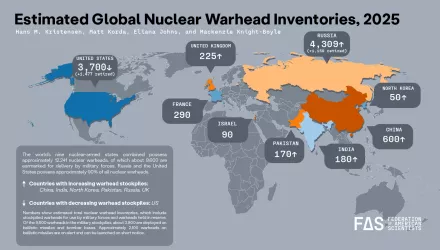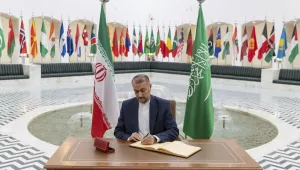After nearly 25 years of wrestling with Saddam Hussein, Iran’s Shiite rulers have the war to thank for their newfound power.
The new Iraq was supposed to be a model for the Middle East and a threat to Iran’s theocracy. Instead, Iran has emerged as the biggest winner of the United States’ war. There is little stability or democracy in Iraq to impress Iranians. Conjuring more fear than hope, the war did nothing to loosen the grip of clerical rule over the country. Iranians rejoiced in the fall of Saddam, who fought an eight-year war against their country that killed hundreds of thousands of people, many by chemical weapons. For Iran, the war in Iraq turned out to be a strategic windfall, uprooting Baathism and pacifying a nemesis that had been a thorn in its side for much of the 20th century. Iraq’s new Shiite—and in good measure, Kurdish—masters enjoy friendly ties with Iran. It was no coincidence that Iran was the first of Iraq’s neighbors to recognize its new government and to encourage Iraqis to participate in the political process introduced by the United States.
In the political vacuum that followed Saddam’s fall, Iranian influence quickly spread into southern Iraq on the back of commercial connections—driven by a growing volume of trade and a massive flow of Iranian pilgrims into shrine cities of Iraq—and burgeoning intelligence and political ties. Iran’s influence quickly extended to every level of Iraq’s bureaucracy, Shiite clerical and tribal establishments, and security and political apparatuses. The war turned a large part of Iraq into an Iranian sphere of influence, and equally important, paved the way for Iranian hegemony in the Persian Gulf. With the Iraqi Army gone, there is no military bulwark in the Persian Gulf to contain Iran’s expansionist ambitions.
Iraq also changed the context for U.S.-Iran relations. The Bush administration, having named Iran as part of an “Axis of Evil,” categorically ruled out dealing with it—even after the two countries successfully collaborated over the fate of Afghanistan after the fall of the Taliban in 2001. Regime change in Tehran was Washington’s mantra in 2002. Yet, since the war in Iraq began four years ago, Washington has balked at seriously engaging Iran—despite the impasse over the nuclear issue, Iran’s support for Hezbollah and Hamas, and virulent attacks against Israel. Instead, the United States has decided that the path to regional stability lies in confrontation and rolling back Iran’s regional influence. However, growing anti-Americanism in the Arab world, combined with the expanding U.S. military commitment to Iraq, will make it difficult for Washington to contain Iran easily. In short, Iraq has strengthened Iran and weakened the United States.
Nasr, Vali. “Who Wins In Iraq?.” Foreign Policy, May/June 2007




